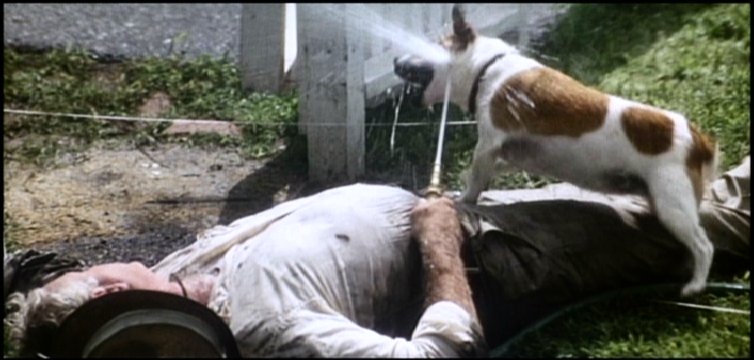David Lynch has a brilliant, painter-esque sensibility as a filmmaker–and also, unsurprisingly, as a painter—but according to a new interview he did with Art in America’s Edward Epstein, it’s not a learned talent. An excerpt:
“Question:
Your films read as a series of carefully composed frames, which are each much like individual paintings. In Blue Velvet [1986], the darks and lights on the actors’ flesh are particularly striking. The drama is reminiscent of Caravaggio. Were you influenced by Baroque painting?
David Lynch:
No. I’m not an art buff at all. I just wanted to be a painter. And that’s all I wanted to do starting in the ninth grade. I’m not a studier. Even in film, I’m the worst film buff.
Question:
When you were at the PAFA [Pennsylvania Academy of Fine Arts], were there any paintings in the collection there that influenced you?
David Lynch:
No. I never went up to the gallery. I don’t know what they had up there. I was thrilled at the Academy because of the students primarily—we inspired one another. And there were a couple of great teachers. But, I really only went in to school a couple of times a week and painted where I lived. …
Question:
The grotesque bodies in both your film and painting—I’m thinking of the film Eraserhead or the painting Pete Goes to His Girlfriend’s House—look like medical oddities. When you were in Philadelphia, did you ever visit the Mütter museum, which has a huge collection of such oddities on display?
David Lynch:
No, but I have heard of it. I did see many oddities in Philly on the street.
Question:
Can you talk more about that?
David Lynch:
I lived in Philly from ’65 to ’70, and it was a different place then. When I visited a couple of years ago it seemed much more normal, much more like every other city. One of the things that got added since I was there is graffiti. For me, graffiti has pretty much ruined every city. Every bit of beauty of the patina of coal dust or acid rain—all of these things that age these buildings so beautifully, and made a mood of the city, were completely taken away by cheap aluminum storm windows and graffiti. And for cinema, if there wasn’t graffiti, you could go to places and see them as if you’d gone back in time and you could see the beauty of those old buildings and get the mood.”
Tags: David Lynch, Edward Epstein

